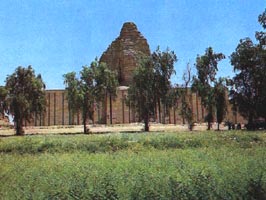Historic sites:
A city’s future should be based on its identity and particular features in
order to preserve what may be called the “urban landscape”.
This “urban heritage” should be the starting-point for the development of
all urban policy. The heritage and its accumulation over time – the history
of its buildings, streets, districts and residents – should be regarded as
the force and foundation of all sustainable development of historic cities
and of their future.
 The uncontrolled frenzy of construction, land speculation and massive rural
to urban migration or excessive tourist development, have resulted in
ecological, aesthetic and cultural disasters at the very heart of historic
cities. The need to harmonize the new economic and social needs of the
inhabitants with the original urban pattern without compromising identity
and authenticity is now a major challenge.
The uncontrolled frenzy of construction, land speculation and massive rural
to urban migration or excessive tourist development, have resulted in
ecological, aesthetic and cultural disasters at the very heart of historic
cities. The need to harmonize the new economic and social needs of the
inhabitants with the original urban pattern without compromising identity
and authenticity is now a major challenge.
In view of the special, elemental role of culture in the quality of life,
strategies should be worked out to protect historic centers and promote
spaces for encounter and exchange so that the city’s cultural identity may
be grounded in its history, architecture, plurality and diversity. This
should enable the development of the historic heritage of cities to be
regarded as a vector for sustainable development.
Focus on training and capacity-building of local authorities in the
management of a city’s cultural assets to accompany the decentralization
process is increasingly necessary. Their involvement and that of civil
society in the management of change, through a participatory approach,
inculcating the principles of democratic governance, transparency and
accountability, are part of the essence of this process. Partnerships are
needed to resolve problems arising from conflict between conservation and
development so as to elaborate appropriate strategies, policies and actions
to mitigate threats. These will also help in addressing the need for
conservation skills training, documentation and mapping of the heritage.
Emphasis should be placed on the development of conservation policies and
plans, legal advice, housing programs in historic centers, transport and
urban mobility and guidance in economic activities adapted to protection of
the heritage.

